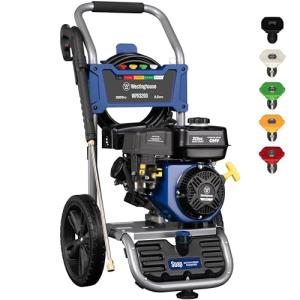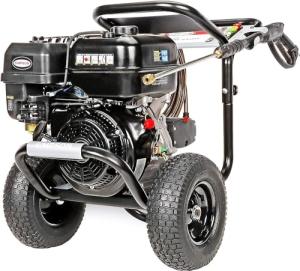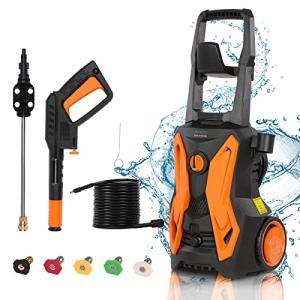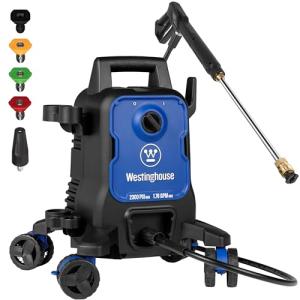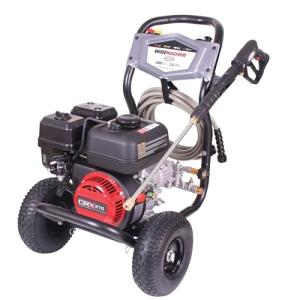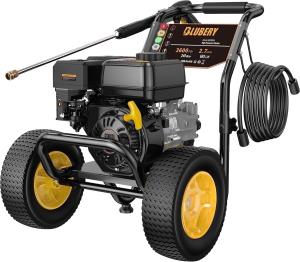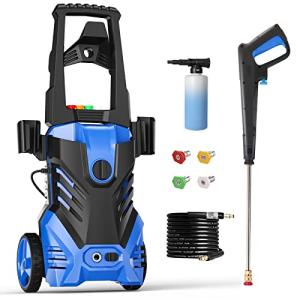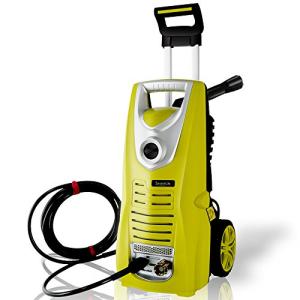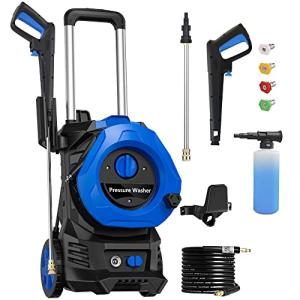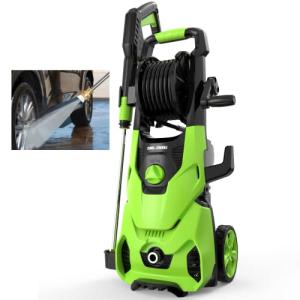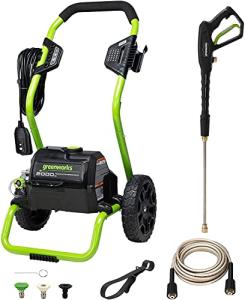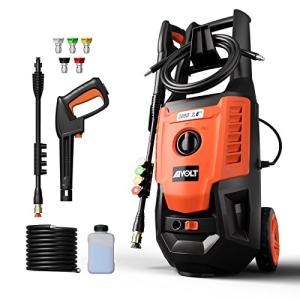How to Choose the Right Commercial Pressure Washer: 4 Key Decisions
Selecting the right machine comes down to understanding the demands of your specific jobs. Here are the four critical decisions you'll need to make.
Decision 1: Hot Water vs. Cold Water
This is the single most important factor for many professional cleaners.
- Hot Water Units are the undisputed champions for jobs involving oil, grease, or tough grime. The heat acts as a powerful cleaning agent, breaking down stubborn substances that cold water alone can't touch. They are essential for mechanics, restaurants, fleet washing, and heavy equipment cleaning.
- Cold Water Units are perfect for removing dirt, mud, algae, and peeling paint. They are generally lighter, more affordable, and sufficient for many construction, agricultural, and property maintenance tasks.
Decision 2: Gas vs. Electric Power
Your work environment will dictate the best power source.
- Gas-Powered Washers offer maximum portability and power, making them the standard for mobile contractors and job sites without a reliable electrical source. They are the go-to choice for pure, unadulterated cleaning force.
- Electric-Powered Washers are ideal for indoor applications where fumes and noise are a concern. They require less maintenance than gas engines and are perfect for food processing plants, warehouses, and workshops with adequate high-voltage outlets.
Decision 3: Understanding PSI, GPM, and Cleaning Units (CU)
Don't be swayed by PSI alone; it's the combination of pressure and flow that gets the job done.
PSI (Pounds per Square Inch): This is the "force" that blasts away dirt. Higher PSI is needed for tough tasks like stripping paint or cleaning hard-caked mud from equipment.
GPM (Gallons Per Minute): This is the "flow" that rinses away the debris. A higher GPM rating often translates to faster cleaning times, as you can move more dirt with each pass.
Cleaning Units (CU): For a true measure of performance, multiply the two: PSI×GPM=CU. A machine with 3000 PSI and 4 GPM (12,000 CU) will clean significantly faster than one with 4000 PSI and 2 GPM (8,000 CU).
Decision 4: Direct Drive vs. Belt Drive Pumps
This is a technical detail that has a major impact on the pump's lifespan.
Direct Drive Pumps are coupled directly to the engine and are more compact and affordable. They are a solid choice for machines used for several hours a week.
Belt Drive Pumps are connected to the engine via a belt and pulley system. This allows them to run at a much lower RPM, which reduces heat and wear. For professionals who use their washer for hours every day, a belt-drive system is a wise investment in long-term durability.
Our Top-Rated Commercial Pressure Washers for 2025
While every job is unique, these models represent the best in their class for performance and reliability.
Best Overall: [Insert Recommended Product Name] - A versatile gas-powered, cold-water unit with a reliable Honda engine and a durable triplex pump, delivering a perfect balance of power and value for a wide range of contracting work.
Best Hot Water Unit: [Insert Recommended Product Name] - Engineered for the toughest industrial jobs, this machine melts away grease and grime, making it essential for fleet maintenance and heavy equipment cleaning.
Most Powerful Gas Unit: [Insert Recommended Product Name] - When you need maximum force, this belt-drive washer delivers high PSI and GPM to tackle the most demanding surface preparation and construction cleanup jobs.
Best Professional Electric Unit: [Insert Recommended Product Name] - A quiet, fume-free workhorse, this electric model provides serious cleaning power for indoor industrial applications without disrupting the work environment.
Frequently Asked Questions (FAQ)
What is the best PSI for commercial work? Most commercial jobs require a machine that can deliver between 2500 and 4000 PSI. The key is to match the pressure to the surface to avoid damage while ensuring effective cleaning.
How long can a commercial pressure washer run continuously? A high-quality, commercial-grade machine with a triplex or belt-drive pump is designed to run for hours at a time. Always refer to the manufacturer's guidelines, but unlike consumer models, these are built for a full workday.
What maintenance does a commercial pump require? Regular oil changes (for both the engine and the pump), checking and cleaning filters, and inspecting hoses and connections for wear are essential for ensuring a long service life.
